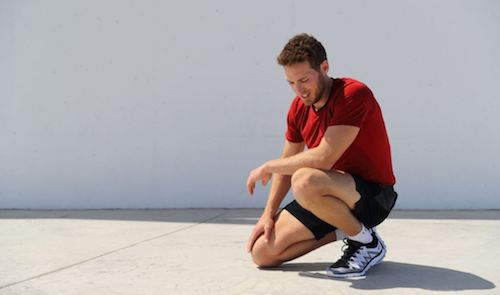The Importance of Rest

Just as advancing in training and challenging the limits of the body is paramount for any athlete, rest is also important. Many athletes underestimate or completely forget the importance of rest. This can translate into fatigue, poor performance, and even injuries.
Many people find the importance of rest difficult to understand. But the truth is that rest is another part of training. And it is so in every sense of the word.
Rest between sets, between one training session and the next. Morning and afternoon, for example. And also rest between days of the week.
For amateur athletes, the general recommendation is to have at least 2 days without working out each week. Preferably, it should be 3 days. For professionals or high performance athletes, this may vary. Trainers plan complementary routines that differ in intensity and allow different muscles to be exercised each day.
In which areas will we see the importance of rest?

Muscle Recovery
When you work out, whether with aerobic or anaerobic exercises, you are pushing your body in a way that exceeds its normal function. Therefore, it is logical that following exertion, it requires a certain amount of time to return to normal levels and reset.
During this rest time, some important processes occur in your body. Among them is to re-establish your body’s normal level of glycogen. The substance that turns into glucose when your muscles demand fuel.
Muscle Growth
When bodybuilding, the work with bars and heavy weights can cause the fibers and tissues, that make up your muscles, to break. Subsequently, during periods of inactivity, these tissues reconstruct with the help of proteins that we consume. This is when muscle growth occurs.
The importance of rest does not just involve a day off from the gym. Getting enough sleep is essential, as many of these regenerative processes take place overnight.
Mental Rest
No matter how passionate you may be about a sport, there comes a time when you need to take a break. In training and competitions, your mind works under extreme pressure to withstand all your hard work.

Consequences of not resting
Many athletes report a drop in performance levels after 1 or more days of resting. However, there is no evidence to support this belief. In fact, quite the opposite: to experience a decline in performance would require 2 weeks of inactivity.
Most professional teams of any sport have at least 1 day off during the week, especially the day after a big competition.
If the best athletes in the world value the importance of rest, why should the rest of us ignore this advice? They have the best preparation, the most prepared doctors and trainers and, above all, they are under immense pressure to perform. It would be very stubborn of us to not follow their example.
What can happen if you do not rest enough? Next, we will describe some possible consequences.
Injuries
Most cramping, contracture, and fibrillary tears are due to excess training. By not taking a break for 1 or 2 days, an athlete might face a forced break of 2 or 3 weeks, due to injury.
Additionally, in the case of sports training, not leaving rest days can cause stress injuries. This occurs when the joints or bones are constantly subjected to pressure, a series of movements, or impact that, in the long run can cause them to crack or break.

Demotivation and unfulfilled goals
As we said, the importance of rest is largely due to the fact that we need to allow time for changes to occur in our body after exertion. If these processes do not occur, an athlete will experience a drop in performance.
This will lead to anxiety and disappointment and when added to the decrease in productivity, resulting from fatigue – even moderate – will lead to demotivation. This can result in the failure of a complex training plan and can cause injury from overexertion. This is the combination of everything an athlete should not do.
So, the next time you take a day off, the last thing you should do is feel guilty. On the contrary, take it as a day of passive training. Take advantage of the opportunity to recharge your batteries. Some good advice for rest time is to maintain a good diet. Relax your mind by doing recreational activities that are not too physically demanding.
Just as advancing in training and challenging the limits of the body is paramount for any athlete, rest is also important. Many athletes underestimate or completely forget the importance of rest. This can translate into fatigue, poor performance, and even injuries.
Many people find the importance of rest difficult to understand. But the truth is that rest is another part of training. And it is so in every sense of the word.
Rest between sets, between one training session and the next. Morning and afternoon, for example. And also rest between days of the week.
For amateur athletes, the general recommendation is to have at least 2 days without working out each week. Preferably, it should be 3 days. For professionals or high performance athletes, this may vary. Trainers plan complementary routines that differ in intensity and allow different muscles to be exercised each day.
In which areas will we see the importance of rest?

Muscle Recovery
When you work out, whether with aerobic or anaerobic exercises, you are pushing your body in a way that exceeds its normal function. Therefore, it is logical that following exertion, it requires a certain amount of time to return to normal levels and reset.
During this rest time, some important processes occur in your body. Among them is to re-establish your body’s normal level of glycogen. The substance that turns into glucose when your muscles demand fuel.
Muscle Growth
When bodybuilding, the work with bars and heavy weights can cause the fibers and tissues, that make up your muscles, to break. Subsequently, during periods of inactivity, these tissues reconstruct with the help of proteins that we consume. This is when muscle growth occurs.
The importance of rest does not just involve a day off from the gym. Getting enough sleep is essential, as many of these regenerative processes take place overnight.
Mental Rest
No matter how passionate you may be about a sport, there comes a time when you need to take a break. In training and competitions, your mind works under extreme pressure to withstand all your hard work.

Consequences of not resting
Many athletes report a drop in performance levels after 1 or more days of resting. However, there is no evidence to support this belief. In fact, quite the opposite: to experience a decline in performance would require 2 weeks of inactivity.
Most professional teams of any sport have at least 1 day off during the week, especially the day after a big competition.
If the best athletes in the world value the importance of rest, why should the rest of us ignore this advice? They have the best preparation, the most prepared doctors and trainers and, above all, they are under immense pressure to perform. It would be very stubborn of us to not follow their example.
What can happen if you do not rest enough? Next, we will describe some possible consequences.
Injuries
Most cramping, contracture, and fibrillary tears are due to excess training. By not taking a break for 1 or 2 days, an athlete might face a forced break of 2 or 3 weeks, due to injury.
Additionally, in the case of sports training, not leaving rest days can cause stress injuries. This occurs when the joints or bones are constantly subjected to pressure, a series of movements, or impact that, in the long run can cause them to crack or break.

Demotivation and unfulfilled goals
As we said, the importance of rest is largely due to the fact that we need to allow time for changes to occur in our body after exertion. If these processes do not occur, an athlete will experience a drop in performance.
This will lead to anxiety and disappointment and when added to the decrease in productivity, resulting from fatigue – even moderate – will lead to demotivation. This can result in the failure of a complex training plan and can cause injury from overexertion. This is the combination of everything an athlete should not do.
So, the next time you take a day off, the last thing you should do is feel guilty. On the contrary, take it as a day of passive training. Take advantage of the opportunity to recharge your batteries. Some good advice for rest time is to maintain a good diet. Relax your mind by doing recreational activities that are not too physically demanding.
This text is provided for informational purposes only and does not replace consultation with a professional. If in doubt, consult your specialist.








